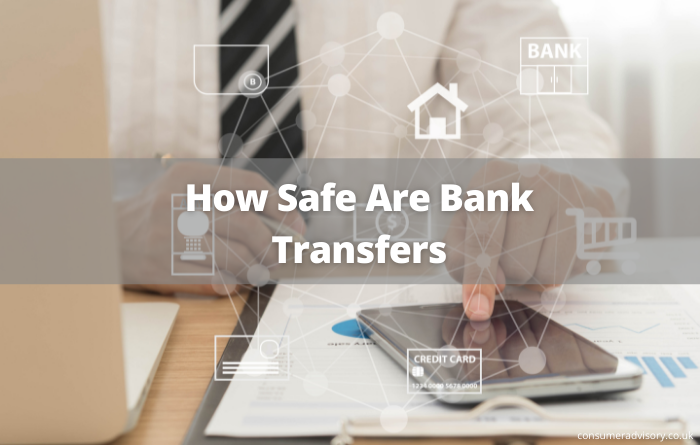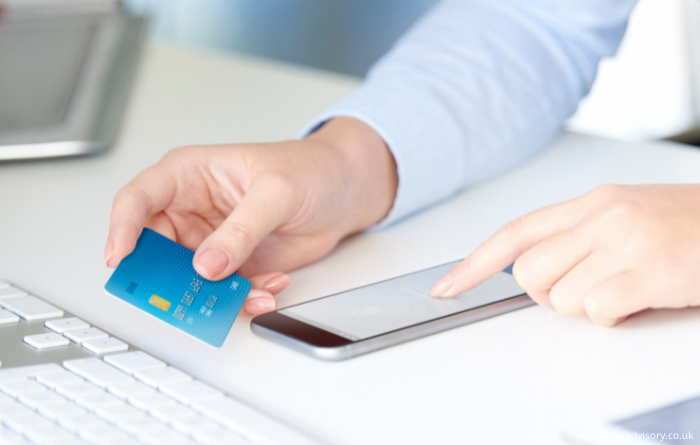
How safe are bank transfers? Whilst bank transfers are generally a safe way to send money to another person or business, there are some precautions you need to take. This includes double checking that the account number and sort code you’ve entered are correct, and that the person or business you are transferring money to is genuine.
In this article, we’ll explore the safety of bank transfers in more detail, as well as discussing whether you can get a refund if you transfer money to the wrong account or discover that you’ve been scammed.
When you send a bank transfer, the money goes from your account to the recipient’s account through the banking system. If you have made a mistake when entering the recipient’s account details, or if the recipient is not who they say they are, then it’s possible that your money could be transferred to the wrong person.
If this happens, you might be able to get your money back, but this is not guaranteed. In order to protect yourself from fraud, it’s important to only transfer money to people and businesses that you know and trust.
There are a few steps you can take to make sure your bank transfer is safe:
If you have been scammed or have transferred money to the wrong account by mistake, you should contact your bank immediately. They may be able to refund the money if it can be proven that you are not at fault.
However, it’s important to remember that banks are not obliged to give you a refund and that they may not be able to recover your money if it has already been transferred out of the country.
Whilst bank transfers are generally safe, there is always a risk that you could be scammed. This is usually done by someone asking you to transfer money to their account, often claiming to be from a legitimate company or organisation.
If you receive an email, text message or phone call out of the blue asking you to make a bank transfer, be very careful. Legitimate companies will not usually contact you out of the blue to ask for money.
If you’re unsure whether the request is genuine, don’t respond and instead contact the company directly using their official website or phone number.

If you think you’ve been scammed, contact your bank immediately and report it to Action Fraud, the UK’s national fraud reporting centre.
You should also tell the company or organisation that the scammer claimed to be from. For example, if you were scammed by someone claiming to be from HMRC, you should report it to HMRC.
There are a few things you can do to protect yourself from bank transfer scams:
When you make a bank transfer, the money goes from your account to the recipient’s account through the banking system. You can do this through your online banking system, or by calling your bank directly.
The process is usually pretty quick and simple – you just need the recipient’s account details, including their account number, sort code and account name. You’ll type in the recipient’s details which will be checked by your bank. You’ll then confirm the amount you want to transfer and when you want it to be transferred.
The money will be available in the recipients’ bank account immediately, although funds can take up to an hour to show in some circumstances.
Most bank transfers are free, although some banks may charge a small fee for making bank transfers, especially if you’re transferring money to an account with a different bank.
It’s always worth checking with your bank before making a transfer to find out whether they’ll charge you any fees.

Whilst bank transfers are generally safe, there is always a risk that you could be scammed. This is usually done by someone asking you to transfer money to their account, often claiming to be from a legitimate company or organisation.
If you receive an email, text message or phone call out of the blue asking you to make a bank transfer, be very careful. Legitimate companies will not usually contact you out of the blue to ask for money.
If you’re unsure whether the request is genuine, don’t respond and instead contact the company directly using their official website or phone number.
In order to make a bank transfer, you’ll need the following details from the recipient:
You may also need their address, although this is usually not required.
Once you’ve made a bank transfer, it’s difficult to cancel it. You’ll need to contact your bank directly and ask them to cancel the transfer. They may be able to do this, but they may also charge you a fee for cancelling the transfer.
It’s always best to double-check that you have the correct details before making a bank transfer, to avoid the need to cancel the transaction.
Bank transfer scams usually involve someone contacting you out of the blue and asking you to transfer money to their account. They might claim to be from a legitimate company or organisation, such as your bank, HMRC or a utility company.
They might say that there’s been a problem with your account, or that you owe them money. They might also say that you need to transfer money in order to receive a prize or compensation.
If you receive an unexpected request for a bank transfer, be very careful. Don’t respond and instead, contact the company directly using their official website or phone number.
Never give out your bank account details to someone you don’t know and trust.
By following these simple tips, you can help to keep your bank transfers safe and secure. Remember, if you’re ever unsure about a request for a bank transfer, don’t hesitate to contact the company directly to check whether it’s genuine.
There are a few simple steps you can take to avoid being scammed:
In general, online banking is safe. However, it’s important that you never give your username or password out to anyone, and that you avoid checking your online banking on public computers or WiFi networks.
If you’re ever worried about the safety of your online banking, you can always contact your bank directly to check.
If you think you might have been a victim of bank transfer fraud, or if you think someone is trying to scam you, there are a few things you should do:
If you’ve been a victim of fraud, it’s important to know that you’re not alone and that there is help available. Action Fraud can give you advice and support, and they can also help you to report the incident.
Reporting fraud can also help to prevent other people from becoming victims in the future.
Generally speaking, no. You should never give your bank account details to someone you don’t know and trust.
If you’re thinking about doing a bank transfer with a stranger, there are a few things you need to be aware of. Firstly, if the person is asking you to transfer money to their account unexpectedly, it’s likely that they’re trying to scam you.
Secondly, even if the person is legitimate and you do make the transfer, you’ll probably find that it’s very difficult to get your money back if something goes wrong.
For these reasons, it’s best to avoid doing bank transfers with strangers altogether. If you’re ever unsure about a request for a bank transfer, don’t hesitate to contact the company directly to check whether it’s genuine.
Unfortunately, if you make a payment by bank transfer and something goes wrong, you’re not covered by the same protections as you would be if you’d used a credit or debit card.
This means that if you don’t receive the goods or services you were expecting, you’ll find it very difficult to get your money back.
PayPal is a good option if you’re looking for protection for a purchase. However, you’ll need to make sure you use the Goods and Services option when you pay, as this offers some protection if something goes wrong.
This is a difficult question to answer, as both bank transfer and PayPal have their own advantages and disadvantages.
Generally speaking, bank transfer is more secure than PayPal, as your bank account details are never shared with the recipient. However, if something does go wrong with a bank transfer, you’re not covered by the same protections as you would be with PayPal.
On the other hand, PayPal offers some protection if you don’t receive the goods or services you were expecting. However, it’s important to note that this protection is not available if you use the Friends and Family option when you pay.
Bank transfers are a fast and efficient way to transfer money to an individual or company, without needing to leave your home. However, it’s important that you are aware of the key safety information before completing a bank transfer to avoid scams and keep your information safe.
In this article, we’ve answered the question ‘how safe are bank transfers?’ as well as answering some of the most commonly asked questions about bank transfers.
Copyright © 2025 Consumer Advisory. All rights reserved.